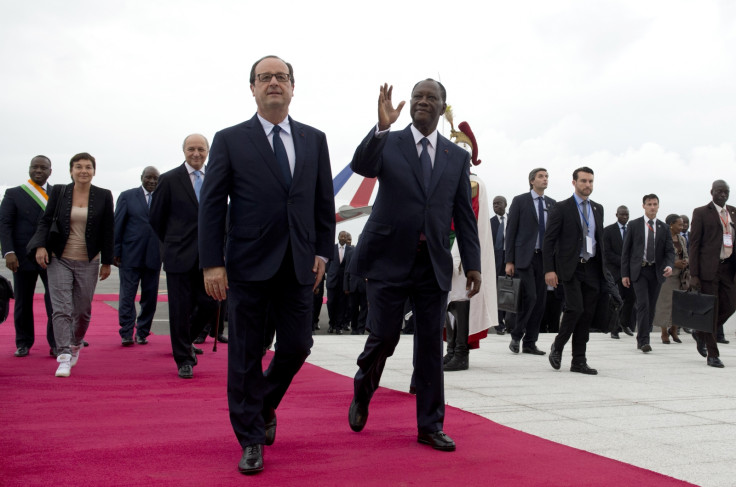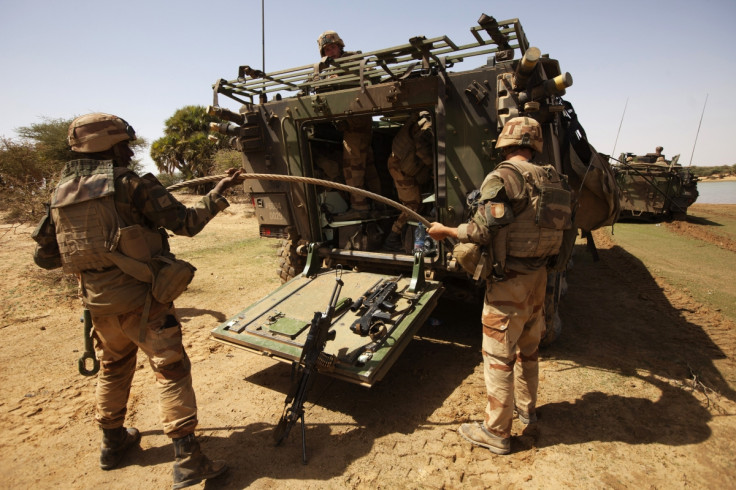France-Africa Summit of Bamako: France's charm offensive to forge partnerships across Africa
Economic diplomacy rendezvous offers an opportunity to assess French President Hollande's Africa policy.

The 27th France-Africa summit opened this morning (13 January) in the Malian capital, Bamako, three years after the French government launched a charm offensive to forge new partnerships across the continent.
The two-day summit dubbed Bamako Summit for Partnership, Peace and Emergence, is attended by the French President, Francois Hollande, his Malian counterpart Ibrahim Boubacar Keïta and 35 francophone and anglophone African Heads of State or government.
It is however worth noting the absence of the Democratic Republic of Congo (DRC)'s embattled President Joseph Kabila, Ivory Coast's head of state Alassane Ouattara, Burundian President Pierre Nkurunziza and the Gambia's controversial strongman Yahya Jammeh.
France eyes Africa's growing middle-class
Leading the economic diplomacy rendezvous, some 60 business leaders of the MEDEF (the French employers' union) were meeting with employers of several African countries - an opportunity for the French private sector to regain market share on the continent lost to other partners including China, India and Turkey. According to RFI, French firms have lost almost half of their market share in sub-Saharan Africa over the last decade.
Set to take over as the most populous continent in the world, Africa's growing middle class, crucial for economic growth, will represent a gigantic market of between 150 and 300 million consumers.
While the natural resources sector was once the investment of choice favoured by French entrepreneurs, they have now turned their attention to the distribution sector - with giant Carrefour opening new shopping centres on the continent, and Orange poised to become the leader of the African telecom market by 2020.
Less than 10% of French companies are now engaged in the resources sector, according to the Observatoire du développement international.
President Hollande's Africa policy
While discussions about economy and trade are expected to take centre stage, the high-level meeting will also make a collective political assessment of Hollande's Africa policy, some four months before the end of his mandate, marked by five French military interventions on the continent, notably in Mali (Operation Serval) and the Central African Republic (Mission Sangaris) in 2013.

French NGO Survie, which published a report titled Cinq guerres pour un empire (Five wars for an empire), claimed that the French interventions were "far from having resolved crises", notably due to the new alliances established by Paris to combat the terrorist threat in the Sahel.
Several African civil society groups shared this concern, claiming that under Hollande, France has sacrificed human rights and democracy for the sake of stability - effectively supporting African strongmen including Chadian head of state Idriss Déby and Denis Sassou-Nguesso in the Republic of Congo (Congo-Brazzaville), who are at the core of the French military arrangement - and entanglement - in the region.
According to Laurent Duarte, of the collective Tournons La Page (Let's turn the page), these "African dictators (...) have obtained a sort of annuity for stability. They are cashing on their legitimacy and their presence on the African territory (by using) this idea that they are the holders of a legitimate violence to fight terrorism."
For many commentators, this is far from Hollande's promises to put an end to Françafrique when he was still a presidential hopeful in 2011. The term Françafrique is today used to describe the negative neo-colonial aspects of the relationship between France and African nations.
© Copyright IBTimes 2025. All rights reserved.






















